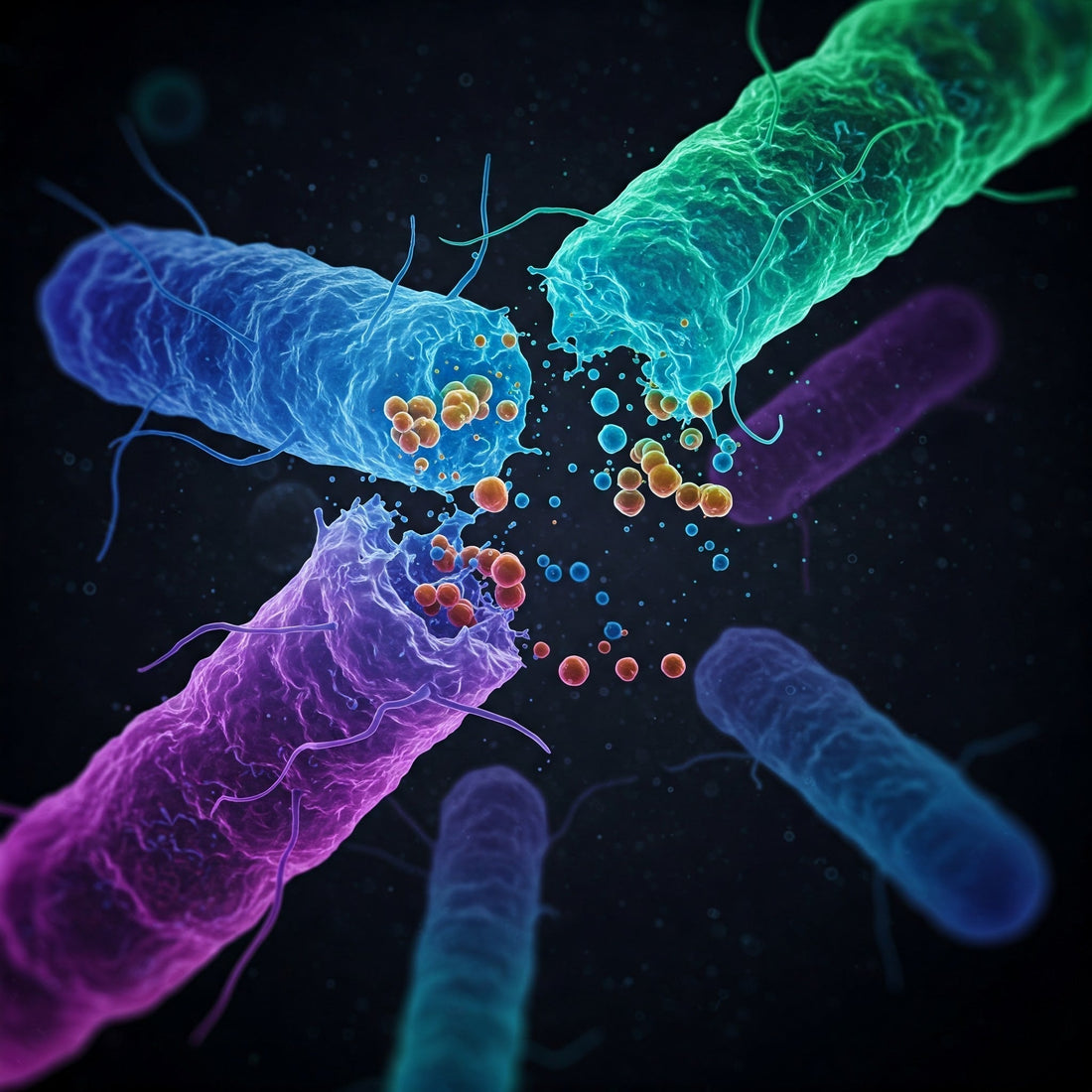
The Journey of Prebiotics: What Happens When You Eat Them?
Share
Prebiotics have become a hot topic in gut health, but what exactly happens to them once they enter your body? Unlike probiotics—live beneficial bacteria—prebiotics are dietary fibres and compounds that nourish the microbes already thriving in your gut. They don’t get digested like regular food; instead, they embark on a fascinating journey through your digestive system, feeding your gut bacteria and influencing your overall health.
Step 1: Passing Through the Stomach Unchanged
When you consume prebiotics—whether from foods like onions, garlic, bananas, or from supplements—they make their way through your stomach largely intact. This is because prebiotics resist digestion by human enzymes. Unlike simple carbohydrates, which are broken down quickly for energy, prebiotic fibres are tougher and designed to survive the harsh acidic environment of the stomach.
Step 2: Arrival in the Colon—The Fermentation Begins
Once prebiotics reach the colon (large intestine), the real magic happens. Here, they become fuel for beneficial gut bacteria, particularly species like Bifidobacteria and Lactobacilli. These microbes ferment the prebiotics, breaking them down into useful byproducts such as short-chain fatty acids (SCFAs), including butyrate, acetate, and propionate.
Step 3: The Benefits Unfold
The fermentation of prebiotics doesn’t just feed gut bacteria—it has ripple effects throughout the body:
- Nourishing Gut Bacteria: By supporting beneficial microbes, prebiotics help maintain a balanced and diverse gut microbiome, which is essential for digestion and immunity.
- Strengthening the Gut Barrier: SCFAs like butyrate fuel the cells lining the gut, improving intestinal barrier function and reducing inflammation.
- Regulating Blood Sugar and Appetite: Propionate has been shown to influence metabolism and even help regulate appetite by interacting with hunger hormones.
- Supporting Immune Function: A well-fed gut microbiome helps modulate immune responses, reducing the risk of infections and chronic inflammation.
Step 4: The Impact on Your Health
The effects of prebiotics go beyond digestion. Research suggests they play a role in:
- Better gut health: Helping to prevent conditions like irritable bowel syndrome (IBS) and constipation.
- Mental well-being: The gut-brain axis means a healthier gut microbiome can contribute to improved mood and cognitive function.
- Heart health: SCFAs can help regulate cholesterol and blood pressure.
How to Get More Prebiotics in Your Diet
Incorporating prebiotics into your daily routine doesn’t have to be complicated. Natural sources include:
- Vegetables: Onions, leeks, garlic, asparagus
- Fruits: Bananas, apples, berries
- Whole grains: Oats, barley, rye
- Other sources: Chicory root, flaxseeds, and inulin-rich foods
For those looking to increase their intake, products like The Fibre Plan from The Gut Tailor offer a convenient way to incorporate prebiotic fibres into breakfast, ensuring a gradual increase without digestive discomfort.
Final Thoughts
The journey of prebiotics through your body is a remarkable one, supporting gut health, metabolism, and immunity. While they may not be digested by you, they provide essential nourishment for the trillions of microbes that call your gut home. By embracing prebiotics as part of your diet, you’re investing in a healthier microbiome—and a healthier you.
